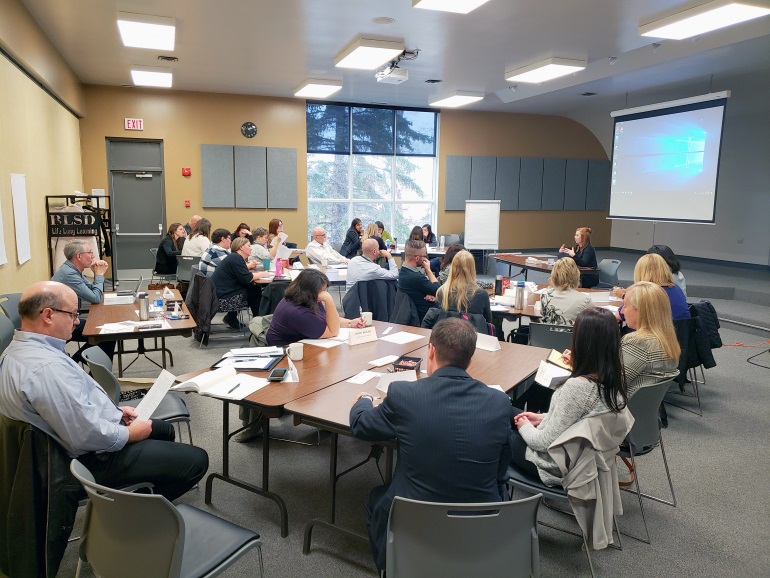Representatives from community mobilization units across the province met in Altona last week to brainstorm and share best practices as part of their fall meeting.
The Manitoba Community Mobilization and Safety Initiatives (MCMSI) Network consists of approximately 30 members representing 12 Community Mobilization Initiatives from across Manitoba. Included in that network is the Altona-based CommUNITY Support Team which is comprised of 8 partner agencies; Border Land School Division, Altona Police Service, Genesis House, Family Division, Rhineland Area Ministerial, Child & Family Services Central MB, Community Mental Health and Southern Health-Sante Sud.
"It allows us to harness the individual good work that the different agencies are doing and bring it all together so that the conversations aren't happening all over the place...and so you can very easily make the connections that you need to make in the moment with everyone around the table and not try to pull the pieces together from a whole bunch of different places," explains Jonathan Toews, assistant superintendent for Border Land School Division.
"Our students are part of the community and the challenges that the community faces also flow back into the school, so we are completely invested in what happens in the community," added Toews when asked why the school division wanted to be a partner in this effort.
With a mission to work together with individuals, families and their supporters to get through complicated issues and make life better, the CommUNITY Support Team has worked collaboratively to deal with matters of safety, addiction, housing, relationship separations and re-integrating people back into the community after their release from jail since its inception in 2015.
"If we're identifying a high-risk situation or family dynamic and we can get in there through early intervention, that person may never end up in the justice system and that's really the goal," said Altona Chief of Police, Perry Batchelor. "Someone who's in the justice system that we can help make their life better, and maybe that's through reaching out and finding employment...we'll do our best in that regard too."
However, Batchelor warns the individual or family has to buy into the process in order for it to be successful.
"We're not going to be there to make your life easier by us doing all of your work. You've to got be prepared to carry your fair share of the load and you've got to one hundred percent totally honest with us, and that's hard too because now you're asking for help and you've got to put your pride aside. It's very difficult," he said. "The emotions you're dealing with in some of those first meetings is very raw."
In some cases, the police chief says it could take only three meetings to solve the problem, whereas other instances can see the team still working after thirty.
Batchelor admits the work is hard for all involved, however, he says at the end of the day it is well worth it.
"People have said things like 'I feel better and less stressed. Things don't feel so hard anymore.'," he explained. "Something that is so simple for most of us, we really don't get some of the struggles that a lot of people our community go through day today."
Toews added that the results of the group's work have been evident at the classroom level as well.
"We see that when parents feel more supported, students feel more supported. When students feel more supported, the parents feel like they're more able to support their child," he said.
Batchelor notes this approach isn't the silver bullet to preventing recidivism but adds each partner agency works hard to remove barriers and make life better for the people they help.


















